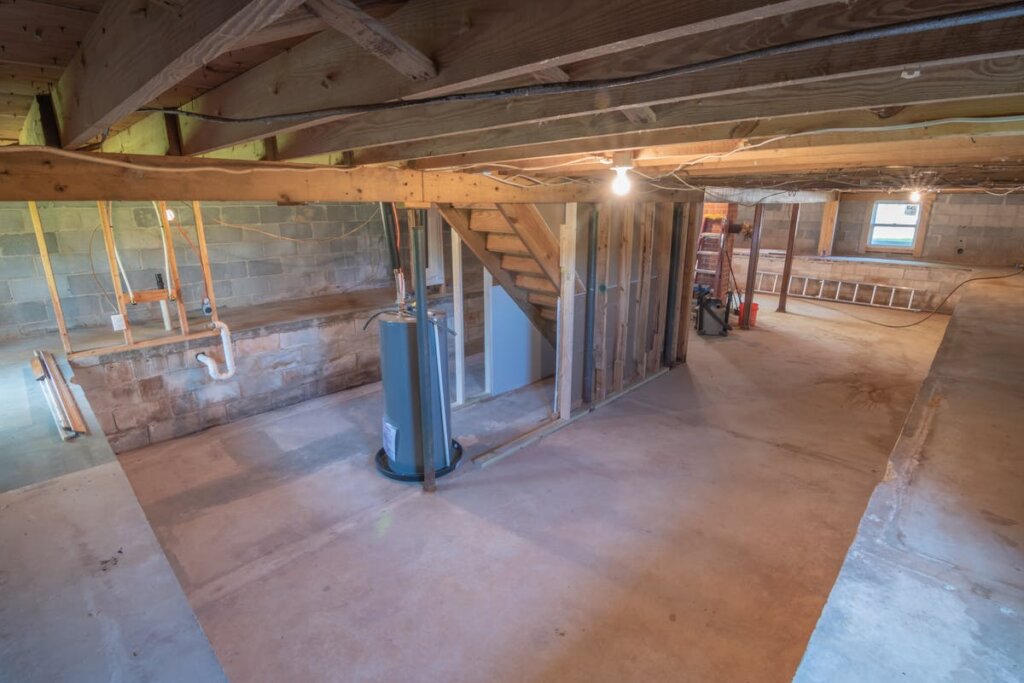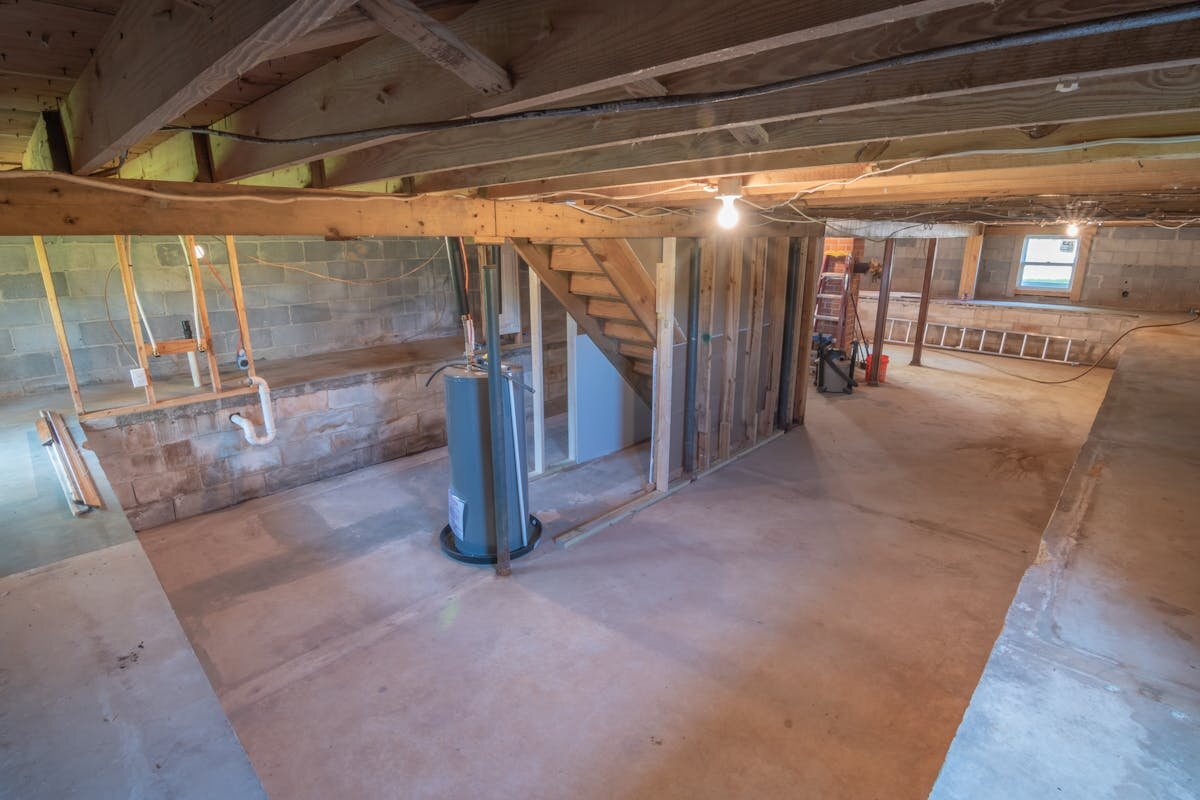
Your home’s foundation is more than just a concrete slab—it’s the base that holds everything together. When issues arise here, they can impact the structure, safety, and value of your property. In Connecticut, with its mix of older homes and fluctuating seasonal conditions, house foundation problems are common and can be costly if ignored.
Whether you’re planning to sell your house, considering buying one, or simply want to protect your investment, spotting and addressing foundation issues early is critical. Left unchecked, a minor crack today could become a major repair tomorrow. Even worse, foundation problems can derail a sale, reduce your home’s market value, or cause long-term structural damage.
This guide will help you understand the most common foundation problems in Connecticut homes, how to identify the early warning signs, and what to do to fix them before they become bigger—and more expensive—issues.
What Causes Foundation Problems in Connecticut Homes?
The most common causes of foundation damage in Connecticut come down to the soil, moisture, and age of the home. Connecticut experiences freezing winters, heavy spring rains, and hot summers—all of which contribute to shifting soil and expanding or contracting moisture levels under and around your home’s foundation.
Older homes, particularly those built before modern building codes, are especially vulnerable. Many Connecticut homes also sit on clay-heavy or poorly draining soil, which holds water and increases hydrostatic pressure on foundation walls.
Other causes include:
- Poor construction or inadequate site preparation
- Faulty drainage systems
- Tree roots interfering with soil stability
- Water leaks or plumbing issues under the slab
Recognizing these causes helps you stay vigilant and prevent small issues from turning into costly disasters.
Early Warning Signs of Foundation Problems
You don’t need to be a structural engineer to recognize signs of foundation trouble. Many warning signs start small and are visible both inside and outside the house. The key is catching these signs early before they develop into bigger—and costlier—problems.
Interior signs of foundation issues include:
- Cracks in walls, especially around windows and door frames
- Doors or windows that stick or won’t close properly
- Sloping or uneven floors
- Gaps between walls and the ceiling or floor
- Bowed or bulging basement walls
Exterior signs include:
- Cracks in the foundation itself (horizontal cracks are particularly serious)
- Cracks in brickwork or exterior siding
- Separation between chimneys and the house
- Water pooling near the base of the home
- Uneven porches, steps, or sidewalks pulling away from the structure
Any one of these may be benign, but multiple signs—especially if they worsen over time—are usually a red flag. In Connecticut’s climate, small seasonal shifts are normal, but if cracks widen or doors stop working altogether, it’s time to investigate.
Types of Foundation Problems You’ll See in Connecticut
The type of foundation problems your home might face depends on the construction method and age of the house. Here are some of the most common issues:
1. Settling or Sinking Foundations
This occurs when the soil beneath your foundation can no longer support its weight. It’s common in Connecticut due to freeze-thaw cycles and moisture-heavy soils. You’ll often notice sloping floors and sticking doors as early signs.
2. Horizontal or Stair-Step Cracks
These cracks are typically found in concrete block or poured concrete foundations. While small vertical cracks can be harmless, horizontal cracks usually indicate serious lateral pressure, especially in basements. Stair-step cracks in brick are often signs of shifting or settling.
3. Bowing or Buckling Walls
This is usually caused by hydrostatic pressure—when groundwater pushes against basement walls over time. Bowing walls signal significant structural stress and can lead to partial collapse if ignored.
4. Foundation Heave
This is the opposite of settling. It happens when expansive soil swells from excess moisture, pushing the foundation upward. This can cause cracks, especially in slab foundations, and make floors feel uneven.
5. Water Damage and Mold
While not always a structural problem at first, water intrusion from foundation cracks can lead to mold growth, rot, and indoor air quality problems. Long-term water exposure also erodes the concrete and leads to larger structural failures.
How to Fix Foundation Problems Before They Get Worse
The best time to fix foundation issues is as soon as you notice them. Waiting only gives the problem time to grow—along with the repair bill. The good news? Many foundation problems are fixable, and early intervention is almost always less expensive than major structural overhauls.
Step 1: Get a Professional Inspection
Before jumping to conclusions, consult a foundation specialist or structural engineer. In Connecticut, where older homes are common, these experts will assess if what you’re seeing is cosmetic or structural. They’ll also determine whether soil conditions, water drainage, or structural shifts are to blame.
Step 2: Address Drainage Problems
In many cases, foundation issues stem from poor water management. Redirecting gutters, improving grading, or installing a French drain system can stop water from pooling around your foundation and causing further damage.
Step 3: Repair Cracks Early
Hairline cracks may only need simple epoxy injection or sealant. Larger cracks—especially those wider than ¼ inch—might require more extensive repair, like carbon fiber reinforcement or wall anchors.
Step 4: Reinforce and Stabilize the Foundation
For more serious problems like sinking or bowing, you may need professional stabilization. This could include:
- Helical piers or steel push piers to stabilize a settling foundation
- Carbon fiber straps to reinforce basement walls
- Wall anchors or braces to fix bowing
- Concrete underpinning to re-level and strengthen the base
These repairs may seem expensive upfront, but they’re significantly more affordable than the damage that occurs when problems are ignored.
How Foundation Issues Affect Home Value and Sales
If you plan to sell your home in Connecticut, foundation problems can be deal-breakers for buyers—and lenders. Most buyers require a home inspection before finalizing a purchase, and foundation red flags can send them running.
Even if a buyer is still interested, lenders often won’t approve a mortgage on a home with unresolved structural issues. That means the buyer may either walk away or demand expensive repairs before closing. It also affects your appraisal, reducing the sale price.
That’s why it’s critical to either fix these issues before listing—or consider alternative selling routes if you can’t afford or don’t want to deal with the repairs.
When to Consider Selling As-Is
If your home has foundation problems you can’t afford to fix, you still have options. At Neighbor Joe, we buy homes across Connecticut in any condition—including those with foundation damage. We understand how stressful repairs can be, especially if you’re in a time crunch or facing financial hardship.
When you sell your home to us:
- There’s no need to fix cracks or stabilize walls
- No inspections, appraisals, or financing fall-throughs
- We pay cash and close on your timeline
- There are no agent fees or commissions
This is a great option if your home’s foundation issues are too costly to handle or if you just want to move on without the stress of repairs and showings.
Final Thoughts: Stay Proactive and Protect Your Property
Foundation issues are one of the most serious problems a home can face, but that doesn’t mean you’re powerless. By knowing what to look for and acting quickly, you can avoid structural disasters, protect your investment, and maintain your property’s value.
If you’re a homeowner in Connecticut noticing signs of foundation damage—don’t wait. The sooner you address it, the easier and less expensive the fix will be.
And if you decide that fixing the problem isn’t the right path for you, Neighbor Joe, a local guy who buys houses for cash, is always here to offer a fair, fast, and pressure-free cash offer for your home—foundation cracks and all.

